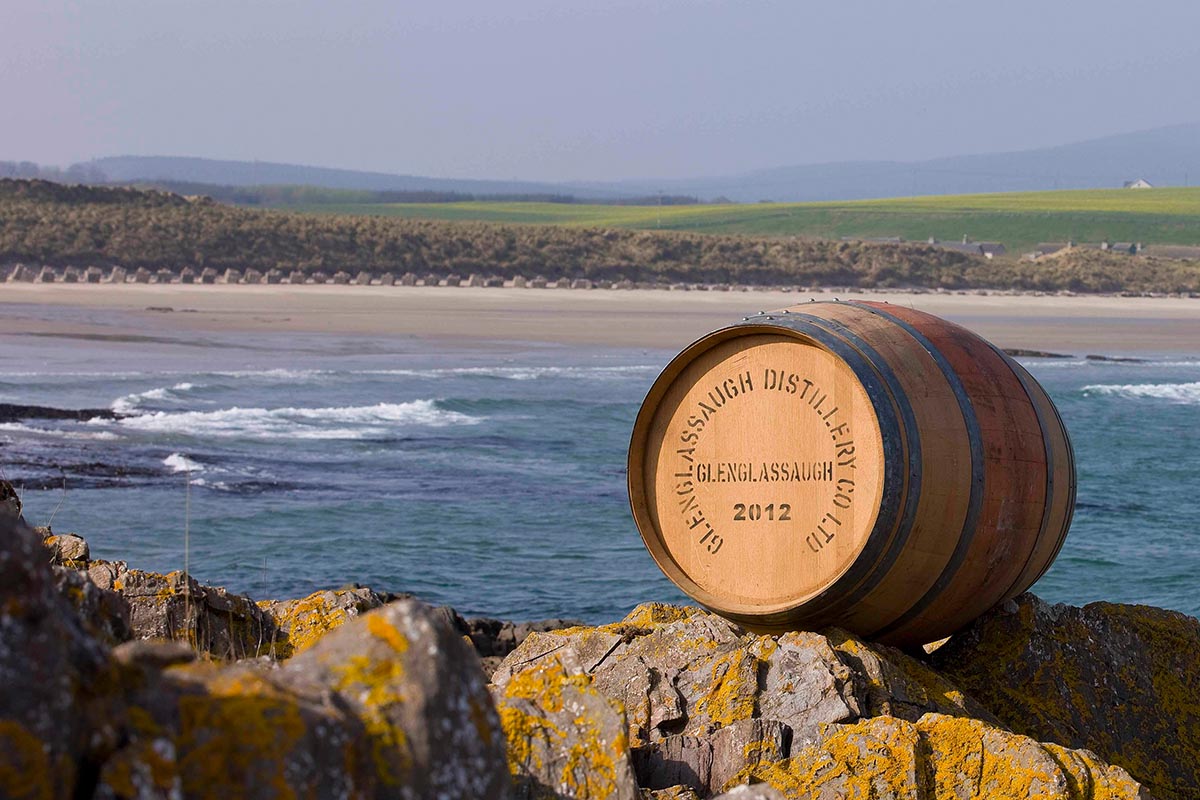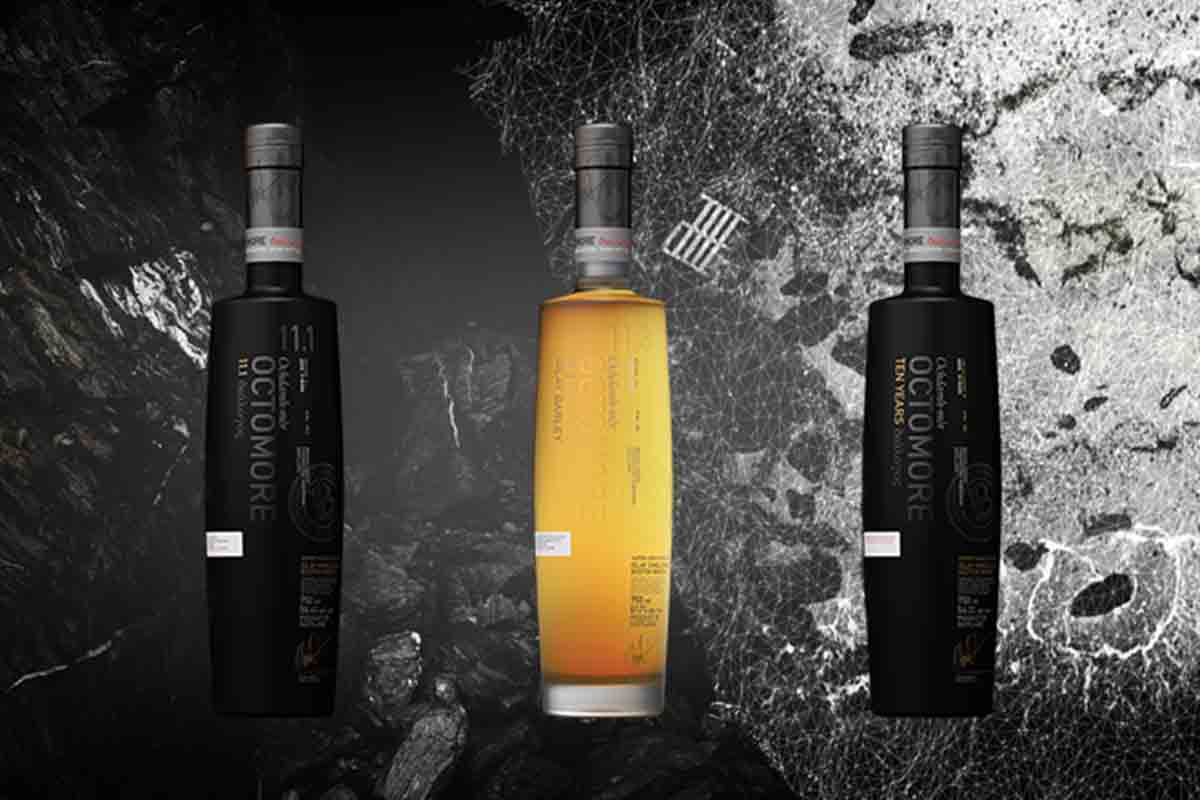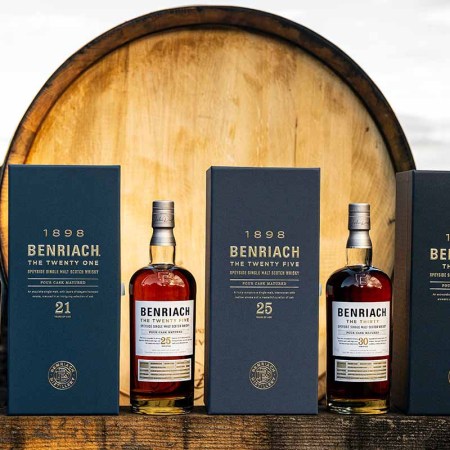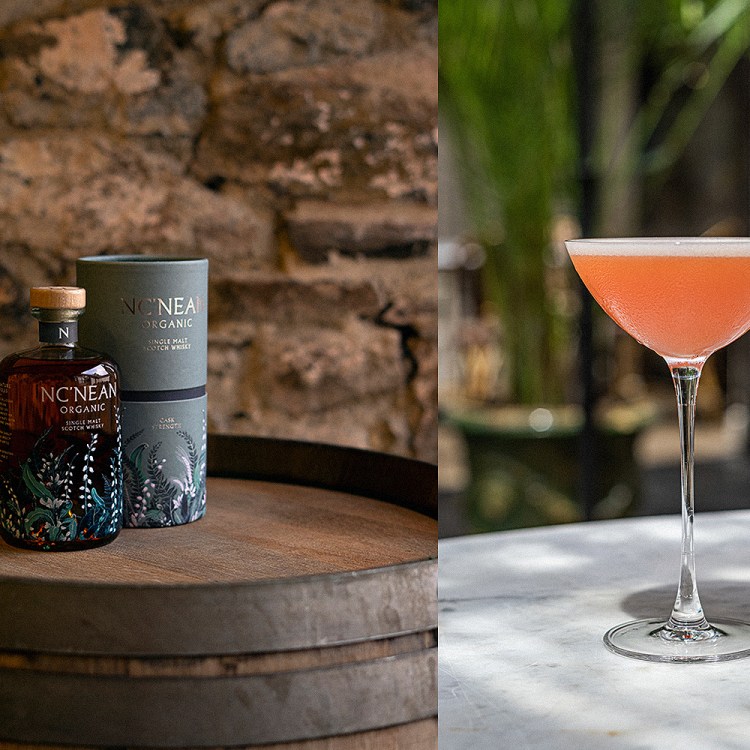What we’re drinking: Glenglassaugh Evolution, Torfa and Revival single malts
Where it’s from: Glenglassaugh, a long-running distillery (born in 1875) in the northeast of Scotland with an unusual/checkered history — it’s closed and reopened a few times and gone through several different ownerships.
But that’s not a quality issue. “It was always the awkward individual,” explains the distillery’s brand ambassador Rory Glasgow. “In the early days, your lifeblood was getting a contract to go into a blended whisky, but Glenglassaugh struggled with that. It’s difficult to incorporate.”
Why we’re drinking these: Now under the stewardship of Rachel Barrie — our 2020 Master Blender / Distiller of the Year — we were curious what this oddball single malt could achieve on its own. We tried three different expressions.
All three we tried have no age statement; future releases may even “evolve” (e.g. the Revival released now may have undergone longer aging than one you picked up a few years back; think roughly 6-10 years for now). Otherwise: No chill filtration, natural coloring, an unusually long fermentation, raw materials sourced from nearby (save for the peat, more on that shortly) and a very mineral-heavy water source. The distillery is also close to the beach, so there’s definitely a salinity to the final product.
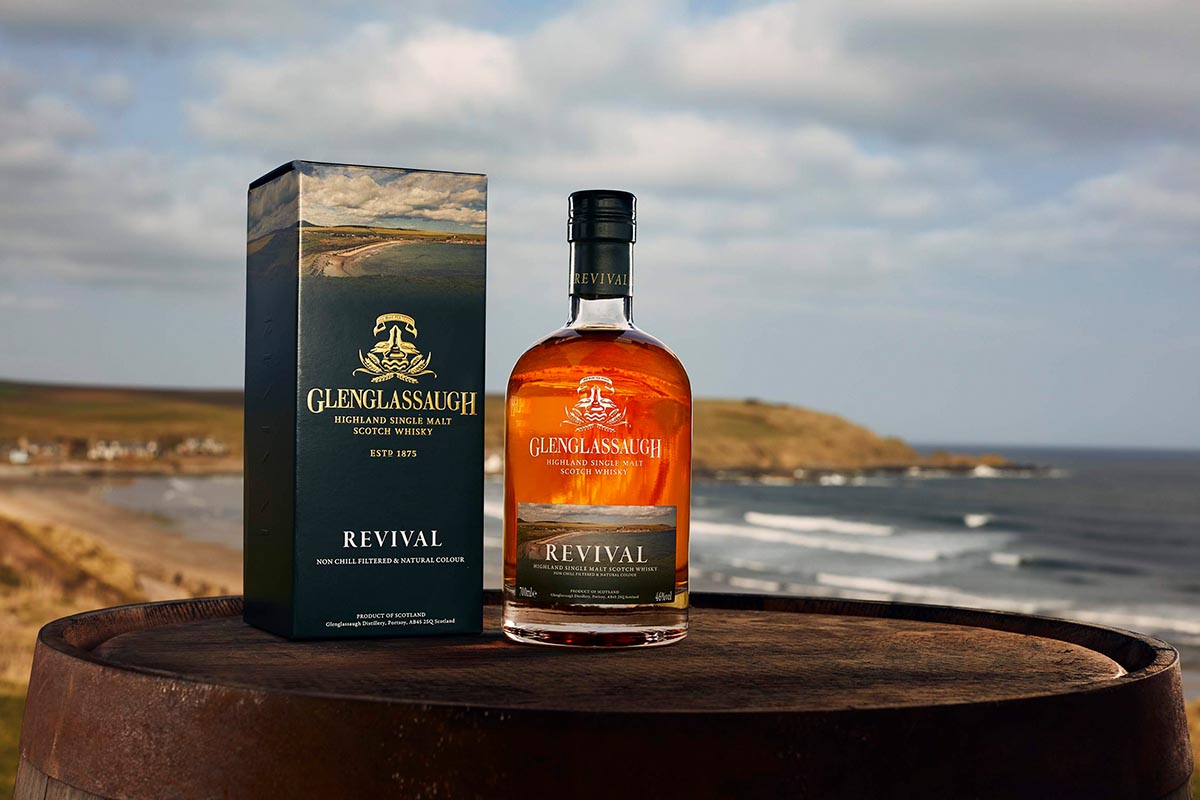
How it tastes: Glasgow describes Glenglassaugh in general as “sweet profile …envision going into a seaside confectionary shop.” And yes, all three have a sweet, fruity, almost syrupy profile. But there are noticeable differences.
Revival is matured in a balanced mix of ex-red wine and fresh bourbon casks, then vatted and re-racked for double maturation in rich sherry casks. You can taste the progression here, as the liquid starts with butterscotch and orange on the nose, while the red wine tannins come more into play as you taste, followed by jammy, baking spice and clove notes. There’s a saltiness here, too, along with a rich and creamy mouthfeel. It’s a complex winner.
Evolution is only aged in ex-Tennessee whiskey barrels, so you’re getting a simple, sweet and fruity profile, with lots of mango, green apple and banana (with salty and vanilla notes). I almost feel you could sub this for a rum at times, as there’s a real tropical character here.
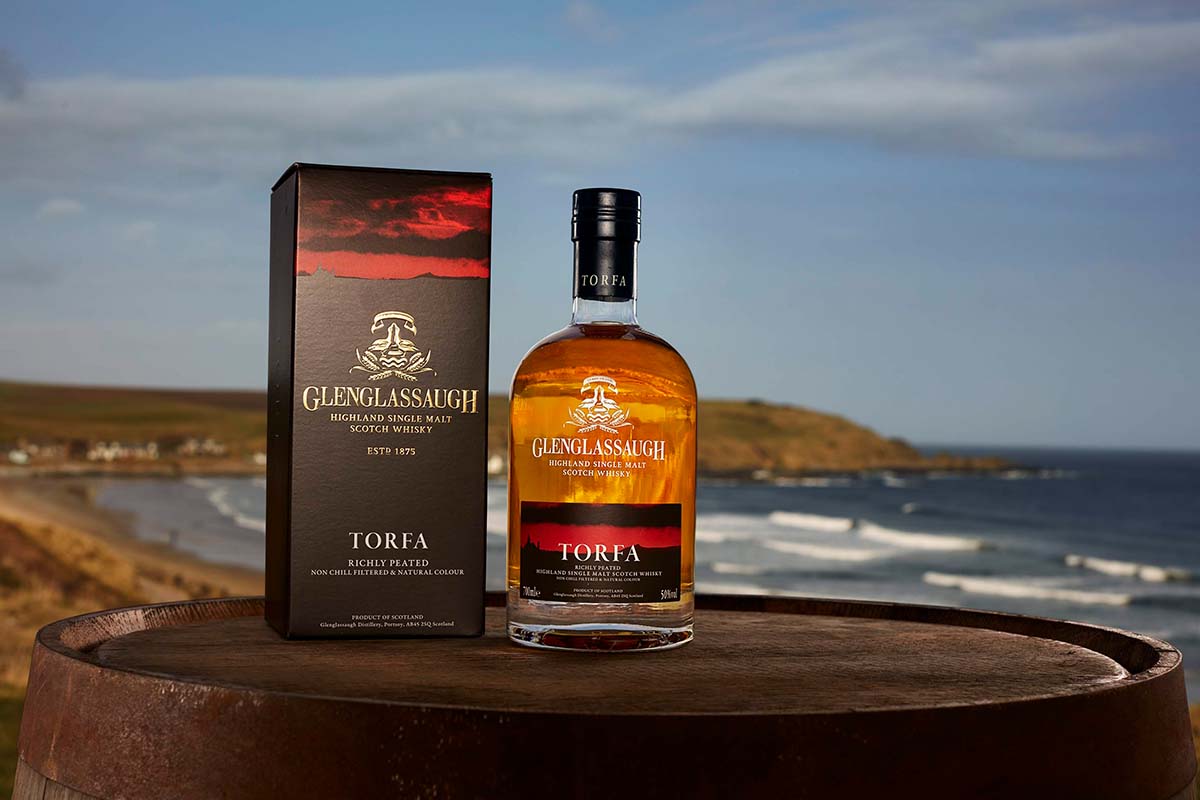
Torfa (“turf”) is your peated expression (with maturation in bourbon and sherry casks), but the peat is sourced from the mainland, so you’re getting something that’s less acidic and a bit more piney than an Islay peat. The smoke is readily prevalent here, but after a few sips and a drop of water (necessary!) the fruitiness returns and you’re left with a lovely, warming campfire-side dessert. The creamy mouthfeel and vanilla notes are present as well.
Fun fact: Whisky fans may know Glenglassaugh better for its older releases (the 30 and 40 Year releases), which predate the distillery’s re-re-opening in 2008. That 40-year release will cost you nearly $1700.
Where to buy it: You can find these expressions on ReserveBar and The Whisky Exchange, although the distillery seems to be making a bigger push to get into your local liquor store.
Every Thursday, our resident experts see to it that you’re up to date on the latest from the world of drinks. Trend reports, bottle reviews, cocktail recipes and more. Sign up for THE SPILL now.
